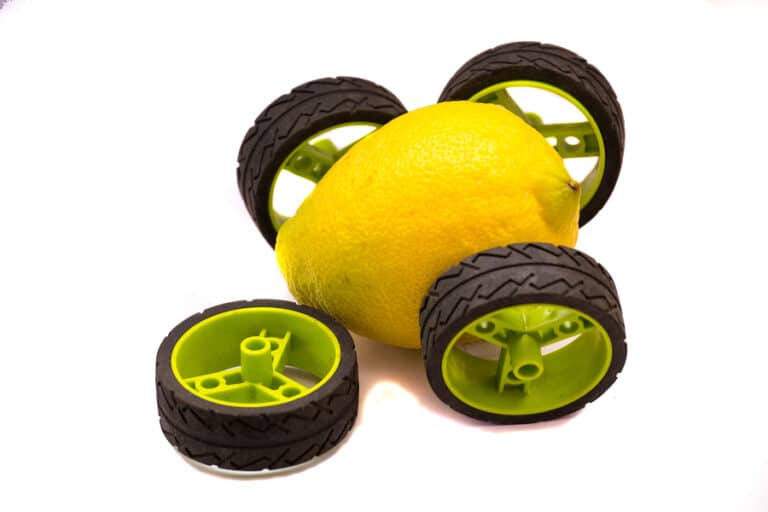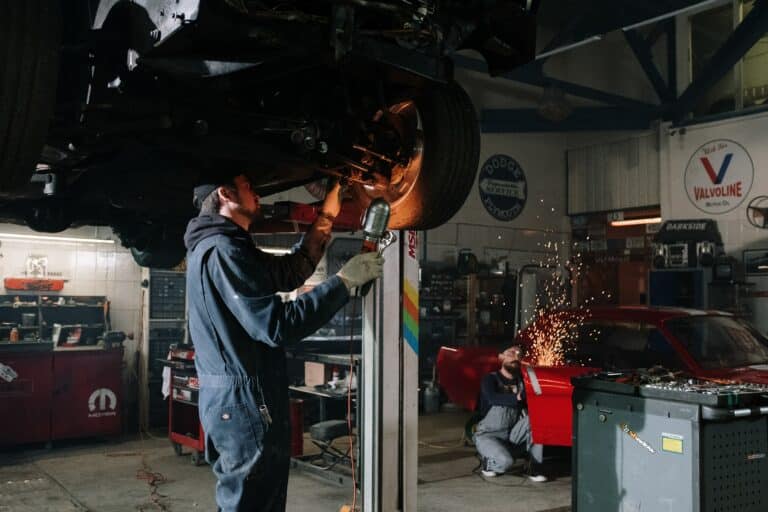
You’re driving down the highway, windows down, and your favorite song is blasting through the speakers. Life is good. Suddenly, your car starts making a strange noise, and the check engine light flashes. You pull over, and your heart sinks. This is the third time this month. Is your car a lemon? How do you get your money back or a replacement vehicle? This comprehensive guide to the lemon law buyback process will help you navigate your rights and options, ensuring you’re not left stranded with a defective vehicle.
Understanding California Lemon Law Buyback
Lemon law buybacks, such as California’s Lemon Law, are consumer protection measures implemented to hold auto manufacturers accountable for their products. Their purpose is to protect customers from substandard vehicles like lemon cars and enforce manufacturer accountability for their products.
The lemon law buyback process can be time-consuming and may necessitate legal action, so it is advisable to enlist the services of a lemon law attorney to achieve the most advantageous outcome.
Lemon law buybacks can provide consumers with financial reimbursement and vehicle replacement for defective motor vehicles. In the event of a lemon law buyback, the car manufacturer may be obligated to reimburse the original consumer for any rental car costs and other associated expenses related to lemon law vehicles.
Why Lemon Law Buybacks Exist
Lemon Law Buybacks are intended to provide compensation to consumers who have purchased defective vehicles, protect consumers from being saddled with a faulty vehicle, and hold manufacturers accountable for producing defective products like lemon law cars.
Lemon Law Buybacks mandate manufacturers to repurchase the defective vehicle from the consumer and refund or replace it, thereby enforcing manufacturer accountability for their defective products. This process helps prevent manufacturers from taking advantage of consumers by selling them faulty vehicles that could cause financial and safety concerns.
Lemon laundering is a major issue in the automotive industry, where unscrupulous dealers attempt to resell defective vehicles without disclosing their lemon history. Lemon Law Buybacks help combat this practice by requiring manufacturers and dealers to disclose the vehicle’s lemon law history, making it more difficult for them to deceive unsuspecting buyers.
By protecting consumers and holding manufacturers accountable, Lemon Law Buybacks contribute to a more reliable and transparent automotive market.
Benefits of Lemon Law Buybacks
Lemon law buybacks offer numerous benefits to consumers who find themselves stuck with a defective vehicle. One of the primary advantages is the option to receive either a full refund or a replacement vehicle from auto manufacturers if their original vehicle is deemed a lemon. This provides financial compensation for the purchase of the defective vehicle, ensuring that consumers are not left with the burden of an unreliable and potentially dangerous vehicle.
Additionally, lemon law buybacks may provide financial compensation for expenses associated with the defective vehicle, such as repair costs, towing fees, and rental car expenses. This extra layer of protection can offer substantial relief for consumers who have had to deal with the inconvenience and financial strain of owning a lemon vehicle.
With the assistance of a skilled lemon law attorney, consumers can navigate the lemon law buyback process and obtain the compensation they deserve.
California’s Lemon Law: A Closer Look
California’s Lemon Law, also known as the California Lemon Law, is a consumer protection law that provides remedies for individuals who purchase or lease a lemon law vehicle that does not meet the manufacturer’s standards or is defective.
The conditions for California’s Lemon Law may differ by state, but they typically include being under warranty and having a defect that cannot be fixed after a reasonable number of attempts. By understanding the eligibility criteria and buyback process specific to California, consumers can take full advantage of their lemon law protections and legal rights.
The buyback process in California entails assessing eligibility, requesting reimbursement or substitution, and obtaining assistance from a legal practitioner or dispute resolution program if required. Following the correct procedures and seeking legal advice when required can help consumers receive just compensation for their defective vehicle. Staying informed and proactive is crucial when dealing with potential lemon law cases for successful navigation of the buyback process.
Eligibility Criteria for California’s Lemon Law
To qualify for California’s Lemon Law, several criteria must be met.
- The vehicle must have a substantial defect that impairs its use, value, or safety.
- This defect must have occurred within the first 18 months or 18,000 miles of ownership.
- The vehicle must have been subject to a reasonable number of repair attempts by the manufacturer or authorized dealer.
- The owner must have provided the manufacturer with a reasonable opportunity to repair the defect.
Understanding these criteria enables consumers to establish if their vehicle qualifies for lemon law protection under the automotive consumer notification act. If your vehicle meets these requirements, it is crucial to take prompt action and seek legal assistance to ensure your rights are protected. By doing so, you can increase the likelihood of a successful lemon law claim and receive the compensation or vehicle replacement you deserve.
The Buyback Process in California
Once it has been determined that a vehicle qualifies for a lemon law buyback in California, the process involves filing a claim, negotiating with the manufacturer, and ultimately receiving either compensation or a replacement vehicle. A lemon law attorney can help you determine if your vehicle meets the criteria for a buyback or replacement according to the lemon law and strive to help you resolve the issue of your defective vehicle.
The lemon law buyback price in California is calculated by taking the odometer reading at the commencement of mechanical issues, dividing it by 120,000, and multiplying it by the purchase price.
It is essential to be proactive and persistent when pursuing a lemon law buyback claim in California. Here are some steps to follow.
- Document all repairs and issues with your vehicle.
- Understand your rights under the lemon law.
- Seek guidance from a skilled lemon law attorney. By following these steps, you can boost the chances of a successful claim and ensure you receive deserving compensation or a replacement vehicle.
Identifying a Lemon Vehicle
While no one wants to find themselves stuck with a lemon vehicle, it’s essential to know the signs to identify one. Recognizing the warning signs early can help you take appropriate action and prevent further financial and safety risks. Indications of a lemon vehicle may include:
- Frequent mechanical issues
- Multiple repairs for the same issue
- Persistent electrical issues
- Unresolved safety issues
- Excessive rust or corrosion
- Unusual noises or vibrations
- Transmission or engine issues
- Poor fuel efficiency
- Difficulties with brakes or steering
- Problems with the air conditioning or heating system
Staying vigilant and proactive allows you to identify potential lemons and take requisite steps for your self-protection. This includes conducting a thorough examination, reviewing a vehicle history report, and seeking legal advice when appropriate. This ensures you make an informed decision when buying a pre-owned vehicle and evade the financial and safety risks associated with lemon vehicles.
Warning Signs of a Lemon Vehicle
The warning signs of a lemon vehicle are numerous and can manifest in various ways. Some common indicators include:
- Recurring issues that persist despite multiple repair attempts
- Significant time spent in the repair shop
- Persistent electrical, mechanical, or safety problems
These issues can not only cause frustration and inconvenience, but can also pose serious safety risks if left unresolved.
Awareness of these warning signs enables you to take appropriate action, address the problems, and guard yourself against the financial and safety risks of owning a lemon vehicle. If you suspect your vehicle may be a lemon, it’s crucial to document all repairs and issues, communicate with the manufacturer or dealer, and seek legal advice when necessary. By doing so, you can ensure your rights are protected and pursue the compensation or replacement vehicle you deserve.
Steps to Take When Suspecting a Lemon
If you suspect your vehicle may be a lemon, it’s essential to take immediate action to protect your rights and interests. Start by documenting all repairs and issues with the vehicle, including dates, descriptions, and any communication with the manufacturer or dealership. This documentation will be crucial in supporting your lemon law claim and demonstrating the extent of the vehicle’s problems.
Next, follow these steps to address the issue.
- Contact the manufacturer or dealer to discuss the issue and seek resolution.
- If the issue remains unresolved, consider consulting a lemon law attorney to explore your legal options and pursue a lemon law claim.
- In some cases, filing a complaint with the relevant consumer protection agency or the Better Business Bureau may also be necessary.
Taking these steps not only protects you from the financial and safety risks of owning a lemon vehicle, but also increases the likelihood of a successful claim.
Choosing a Lemon Law Attorney
When faced with a potential lemon vehicle, enlisting the help of a skilled lemon law attorney is crucial. A reputable attorney can guide you through the complex lemon law buyback process, negotiate on your behalf with the car dealer, and help you obtain the compensation or replacement vehicle you deserve.
But how do you choose the right attorney for your case? By considering their experience, reputation, and resources, as well as their approach to client care, you can make an informed decision and feel confident in your choice.
In the following sections, we’ll discuss the key qualities to look for in a lemon law attorney and offer tips for selecting the right attorney for your needs. Following this advice ensures you have the best possible representation and boosts the likelihood of a successful lemon law claim.
Qualities of a Good Lemon Law Attorney
A good lemon law attorney should possess several key qualities, including:
- Expertise in lemon law
- Experience in handling lemon law cases
- Strong negotiation skills
- Attention to detail
- Effective communication skills
- A client-focused approach
- Tenacity
- A positive reputation and reviews
- Empathy for their clients
When selecting a lemon law attorney, it’s essential to look for these qualities to ensure they have the necessary knowledge and skills to represent your case effectively. Choosing an attorney with these qualities instills confidence in their ability to advocate for your rights and assist in achieving a successful outcome in your lemon law claim.
Tips for Selecting a Lemon Law Attorney
To select the right lemon law attorney for your case, consider the following tips: First, research the attorney’s background and experience in lemon law cases. Look for an attorney who has a proven track record of success in handling similar cases and is knowledgeable in the applicable laws in your state.
Next, read reviews and testimonials from past clients to get a sense of the attorney’s reputation and effectiveness in handling lemon law cases. Additionally, consider the attorney’s communication skills and responsiveness. You’ll want an attorney who is prompt in responding to your inquiries and able to convey information effectively.
Finally, trust your intuition and choose an attorney with whom you feel comfortable and have a rapport. Following these tips can assist in finding a lemon law attorney best suited to represent your case and help achieve a successful outcome.
Replacement Vehicles vs. Buybacks
When dealing with a lemon vehicle, you may be faced with the decision between a replacement vehicle or a buyback. Both options have their pros and cons, and the best choice for you will depend on your individual circumstances and preferences. In this section, we’ll explore the advantages and disadvantages of replacement vehicles and buybacks, helping you make an informed decision that best suits your needs.
Understanding the key differences between replacement vehicles and buybacks enables you to weigh each option’s benefits and drawbacks, helping you choose the one that aligns with your priorities and desired outcome.
Whether you opt for a replacement vehicle or a buyback, it’s essential to work closely with your lemon law attorney to ensure your rights are protected and you receive the compensation or vehicle you deserve.
Pros and Cons of Replacement Vehicles
Replacement vehicles offer a number of benefits, such as:
- Newer models
- Warranty coverage
- Advanced safety features
- Reliability
This option allows you to continue using a vehicle similar to your original one without the defects and issues associated with a lemon. However, there are also drawbacks to consider when choosing a replacement vehicle. These may include depreciation, higher cost, limited options, and the need to adjust to a new vehicle.
When considering a replacement vehicle, it’s important to weigh the pros and cons carefully. While a replacement vehicle can provide continuity and peace of mind, it may also come with its own set of challenges. Ultimately, the decision will depend on your individual needs and priorities, as well as the specific circumstances of your lemon law case.
Pros and Cons of Buybacks
Buybacks, on the other hand, provide financial compensation by requiring the manufacturer to repurchase the lemon vehicle from the consumer. This option allows you to recoup the purchase price of the vehicle and have the freedom to choose a different vehicle or use the funds for other purposes. However, there are also potential drawbacks to buybacks. One such drawback is the need to complete the buyback procedure, which can be time-consuming and may require legal assistance.
When weighing the pros and cons of buybacks, it’s essential to consider both the financial compensation and the potential challenges of the process. While lemon law buybacks can offer a monetary remedy, they may also require more effort and patience than choosing a replacement vehicle. As with replacement vehicles, the decision will ultimately depend on your individual needs and priorities, as well as the specific circumstances of your lemon law case.
Protecting Yourself from Future Lemons
While no one can predict with certainty whether they’ll encounter a lemon vehicle in the future, there are steps you can take to minimize the risk and protect yourself from potential financial and safety hazards. By being proactive and vigilant, you can ensure that you are making a well-informed decision when purchasing a pre-owned vehicle and avoid the pitfalls associated with lemon vehicles.
In the following sections, we will discuss the importance of vehicle history reports, pre-purchase inspections, and extended warranties in protecting yourself from future lemons. By taking these precautions, you can increase your chances of purchasing a reliable vehicle and avoid the financial and safety risks associated with lemon vehicles.
Vehicle History Reports: Your Best Friend
A vehicle history report is an invaluable tool when purchasing a used car, providing key information about the vehicle’s past. This report includes:
- Ownership history
- Accident history
- Title information
- Mileage records
- Any reported damage or repairs
Reviewing a vehicle history report helps identify potential red flags, enabling a more informed decision about proceeding with the purchase. Obtaining a vehicle history report can also help protect you from buying a lemon vehicle. By revealing undisclosed issues or potential problems that could impact the value or safety of the vehicle, a vehicle history report can help ensure that you are making a sound investment and avoiding the financial and safety risks associated with lemon vehicles.
Pre-Purchase Inspections and Extended Warranties
Pre-purchase inspections are another essential step in protecting yourself from future lemons. By having a certified mechanic inspect the vehicle before purchase, you can:
- Identify any potential issues that may need to be addressed
- Avoid costly repairs down the line
- Ensure that you are purchasing a reliable and safe vehicle
Extended warranties can provide an additional layer of protection should you end up with a lemon vehicle. By covering the cost of repairs or even a full replacement of the vehicle if it is determined to be a lemon, an extended warranty can offer peace of mind and financial security when purchasing a vehicle. Investing in an extended warranty can further reduce the risk of purchasing a lemon and protect against the financial and safety risks associated with defective vehicles.
Frequently Asked Questions
Is a buyback the same as a lemon?
No, a buyback and a lemon are not the same. A buyback is financial restitution for the lemon while replacement is when the manufacturer provides a vehicle of comparable value to the lemon owner.
What is the buy back law in California?
California’s Lemon Law Buyback ensures that, when a car is deemed unfit for use, the owner will receive a full refund or have the vehicle repurchased from them.
What is a buy back on a car?
A BuyBack is when a car dealership purchases a vehicle from a customer to maintain their relationship when they are upgrading to a new car. Buybacks are a great way for customers to get a fair price for their vehicle and for dealerships to keep their customers happy. They also help dealerships maintain their inventory of vehicles.
What is the purpose of lemon law buybacks?
Lemon law buybacks provide consumers with compensation for defective vehicles, protect them from faulty products, and ensure manufacturers are held accountable for producing quality vehicles.
How can I determine if my vehicle qualifies for California’s Lemon Law?
If your vehicle has experienced a substantial defect which impairs its use, value or safety within the first 18 months or 18,000 miles of ownership and has had a reasonable number of repair attempts, it may qualify for California’s Lemon Law.













